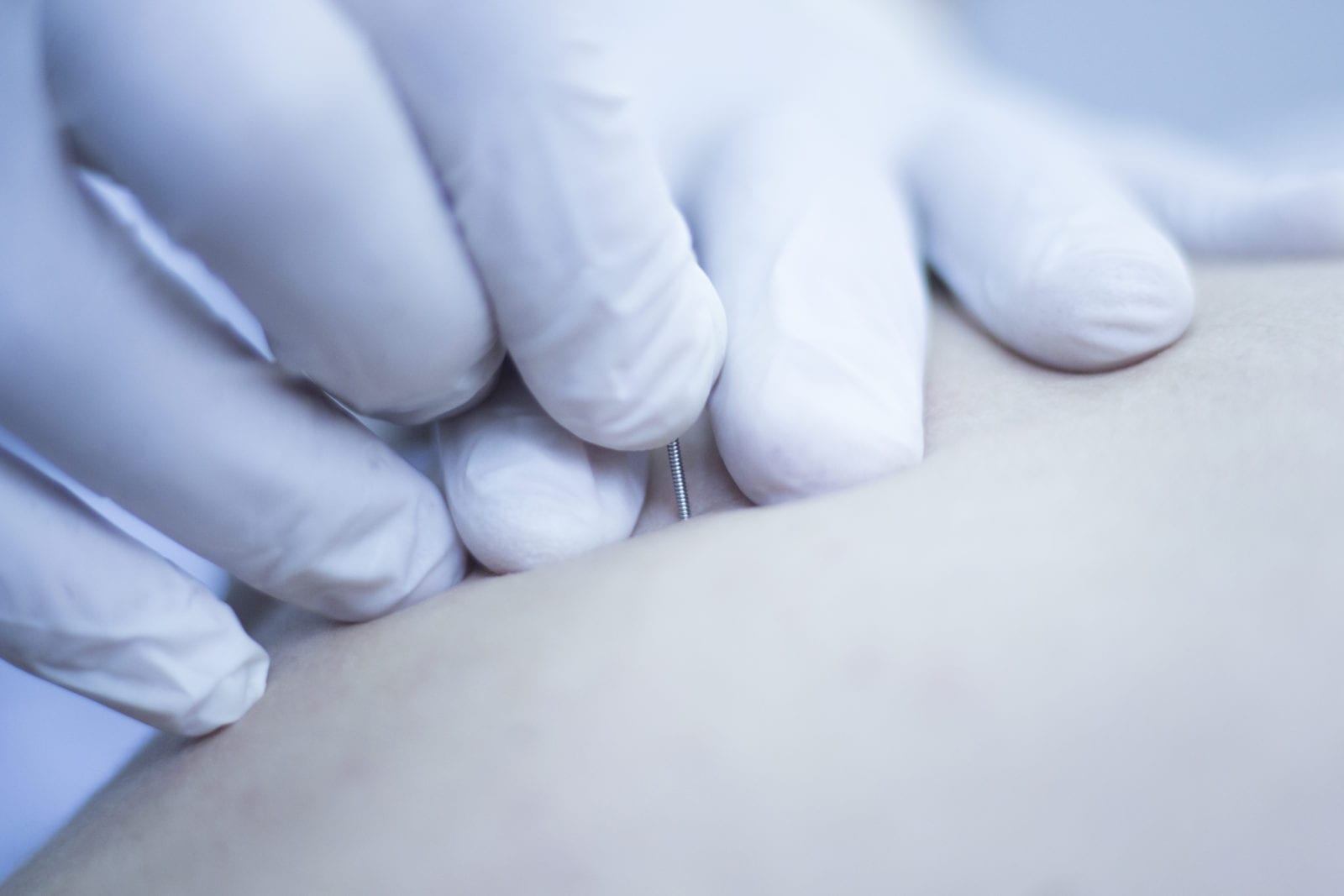Call to speak to a Licensed Insurance Agent
Mon - Fri 8am – 8pm EST; Sat - Sun 10am - 6pm EST

People often use painkiller medications to treat severe pain. However, some procedures can treat severe pain without the need to pop painkillers.
One option is dry needle therapy. It is quite similar to acupuncture, with only a few differences.
For those who are considering dry needle therapy, a common question is, “does Medicare cover dry needle therapy?” In this article, we answer this question in clear, plain English. You will also find the average costs of dry needle therapy, as well as other helpful info.
The short answer is, no, in most cases, Medicare will not cover the cost of dry needle therapy. That said, there may be some situations where you can get these costs covered. Below we’ll take a closer at this to see when you might be able to get Medicare to pay for your dry needle therapy.
Original Medicare (Medicare Part A and B) does not provide coverage for dry needle therapy. This is due to the current lack of research about the procedure and the lack of supervision for its practitioners.
But because Medicare Advantage plans (Medicare Part C) are partnered with private insurers, some Part C plans may offer to cover dry needle therapy.
If you have Medicare Advantage, check with your provider to see if they may cover this procedure. Or, if you’re considering finding a new Part C plan, check if it’s covered while you’re shopping around.
Dry needle therapy costs about $40 per session. This is for the therapy itself. There may be additional costs involved depending on your treatment provider.
This therapy is a modern procedure to treat pain in the muscles. The procedure is becoming more and more popular as time passes by.
In this procedure, filiform needles are inserted into your skin. Filiform needles are stainless steel needles. Unlike medical needles used in injections, this type of needle does not have any holes in them.
The needles are often inserted in the “trigger points” of the muscle or tissue. Trigger points are another term for stiff muscles. Practitioners of this procedure say that it helps loosen and relieve the stiff muscles for a short period of time.
Though practitioners often insert the needle into the trigger points, there are also some occasions where the needles are inserted around the trigger points. That is because some practitioners believe that the cause of the pain comes from greater nerve or muscular issues rather than the stiff muscles themselves.
One of the main differences between the two practices is where they came from and their philosophy. Dry needle therapy is a western practice that aims to restore normal muscle function.
On the other hand, acupuncture came from the east, specifically in China, and it is more than just treating the sore muscles. The philosophy behind it is that it wants to correct the energy imbalance in the body to cure syndromes.
Note: Medicare coverage changes all the time. And your specific coverage may vary from plan to plan for Medicare Advantage and Medigap plans. Always be sure to double check with your health care provider and/or Medicare insurance provider about what your plan covers and what it does not.
This article is part of our series on “What does Medicare cover?”
Also, you can check out other articles in this series including: Does Medicare cover service dogs?